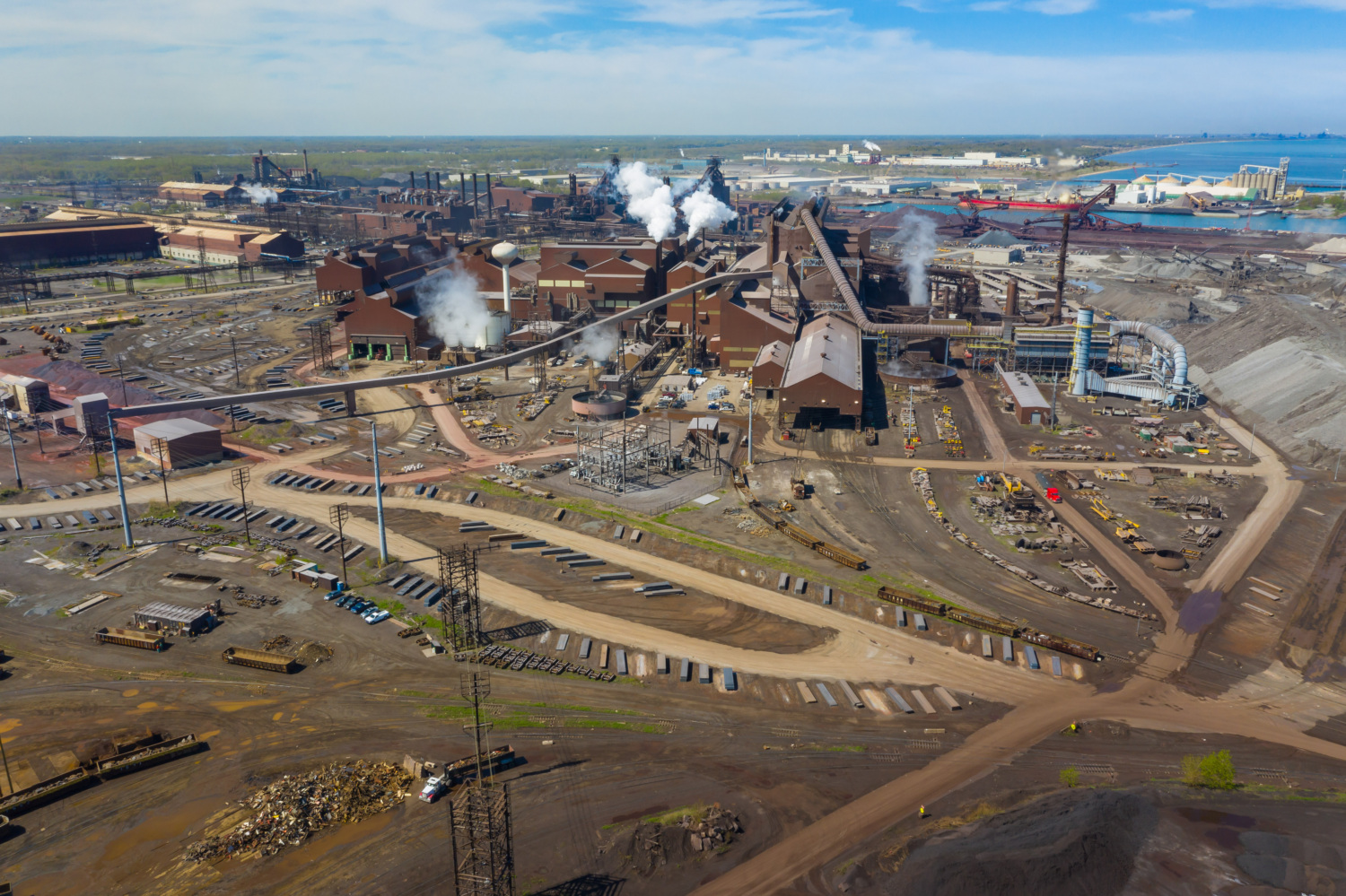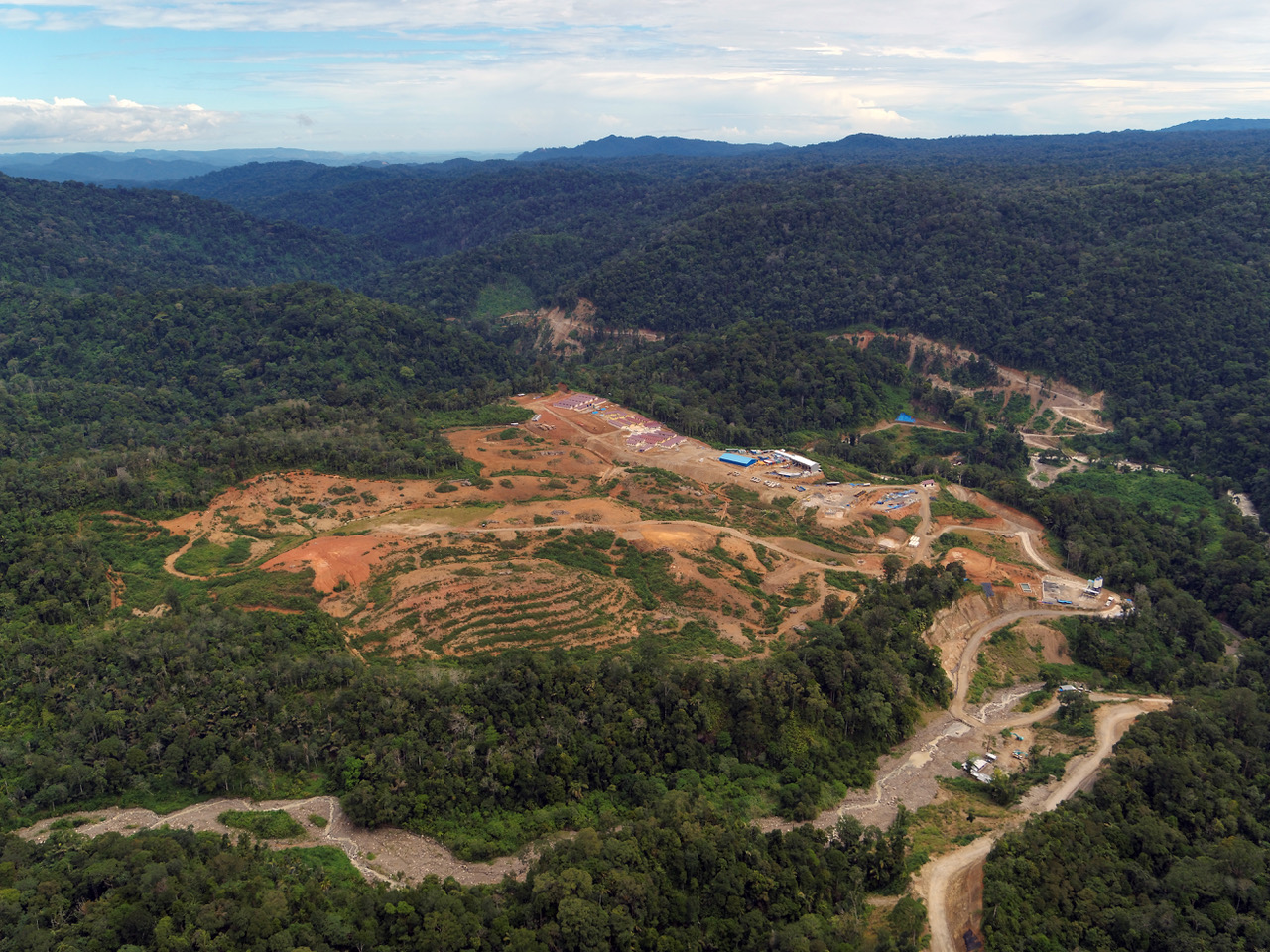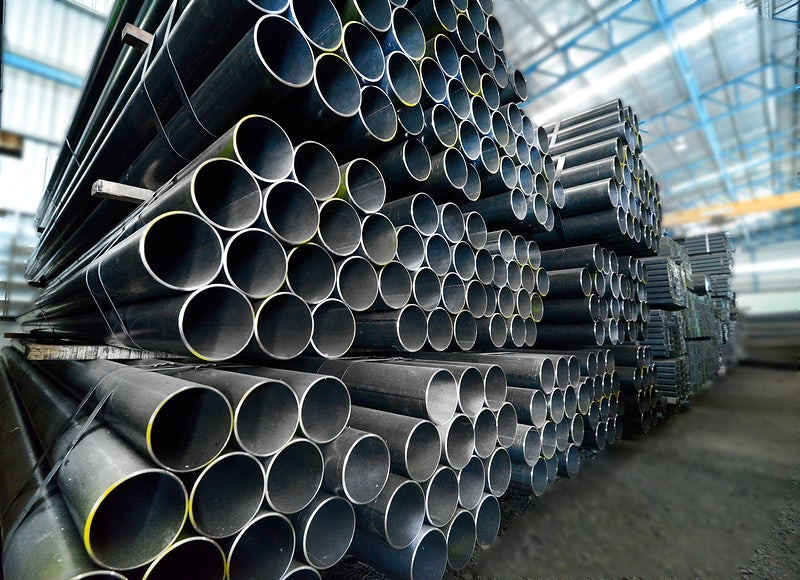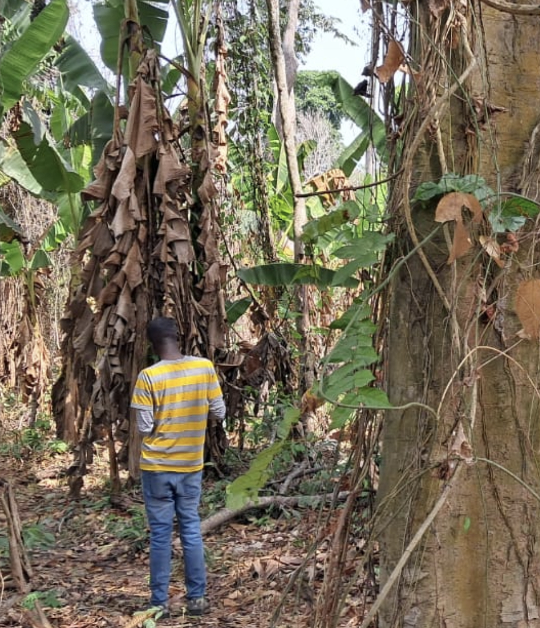
Mighty Earth (Once Again) Calls on Cocoa Industry to End Deforestation across West African Cocoa Belt
By Jackson Harris & Nadine Lorini Formiga
Côte d’Ivoire and Ghana produce the majority of the world’s cocoa. It is well documented that cocoa farming has been a leading driver of deforestation in West Africa; what were once biodiverse forests have been converted into cocoa farms.
In February 2022, Mighty Earth’s Sweet Nothings report uncovered evidence of ongoing tropical forest loss in both countries. The report also highlighted the unfulfilled promises of cocoa traders and chocolate companies (as outlined in the 2017 Cocoa & Forests Initiative) to end cocoa-driven deforestation in the region, calling upon them to take immediate action.
In October 2023, Mighty Earth published our first cocoa-specific Rapid Response Deforestation Monitoring report, shedding light on specific deforestation hotspots across Ghana in close proximity to the purchasing locations of major cocoa traders. In an effort to better understand the main barriers to deforestation-free supply chains, we met with the traders implicated in the report, welcoming feedback on our methodology and urging them to increase supply chain transparency.
Based on our conversations, we sent a ground-truthing team to Ghana’s cocoa belt in March 2024 to investigate additional forest loss alerts. The resulting, newly published report sheds light on drivers of tree cover loss within Ghana’s Krokosua Forest Reserve and Aparapi Shelterbelt. As documented in the “Company Responses” section, traders mentioned in the report responded with varying degrees of accountability: only one company has committed to publishing a public grievance log; only one company has shared their complete geospatial database of farm boundaries and GPS points with Mighty Earth; several companies did not reply when asked to comment on the traceability of their indirect supply chains.
As 2024 draws to a close, forest loss rates remain stubbornly high. RADD alerts have detected over 16,000 ha of forest disturbance in Ghana’s cocoa growing regions since January 1st–the most forest loss in the region since 2020.
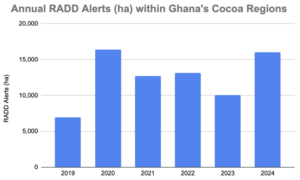
Meanwhile, loss in Côte d’Ivoire’s cocoa belt remains steady, with over 7,000 ha of RADD alerts in 2024 alone.
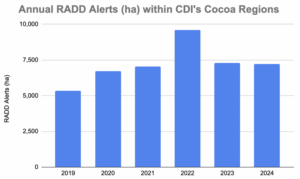
The time for cocoa companies to ensure their entire supply chain (including so-called ‘indirect’ supply) is deforestation-free is now, even as challenges like the recent postponement of the European Union Deforestation Regulation (EUDR) threaten to slow progress. Cocoa traders, chocolate companies, and global stakeholders must not use delays as an excuse for inaction. Instead, they should lead by example—making supply chains fully traceable, implementing transparent grievance mechanisms, and taking concrete steps to protect the forests and communities of Ghana and Côte d’Ivoire.
The forests cannot withstand another year of excuses and unfulfilled promises. Join us in demanding that the cocoa industry lead with integrity, eliminate deforestation from its supply chains, and prove that cocoa can be produced without destroying the world’s most precious ecoSystems.
